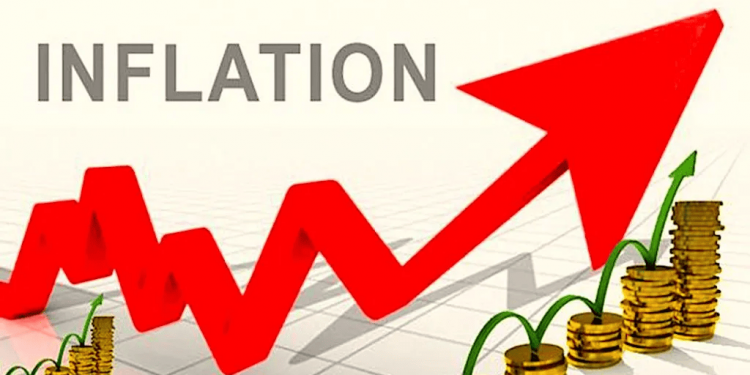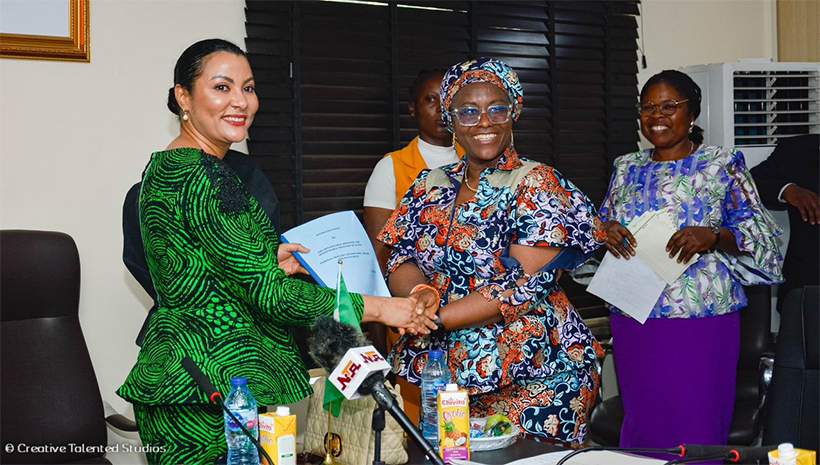The Federal Government, in collaboration with the Central Bank of Nigeria (CBN), has launched a comprehensive economic framework aimed at curbing inflation, accelerating growth, and doubling household incomes. The initiative, known as the Dis-Inflation and Growth Acceleration Strategy (DGAS), represents a new phase in President Bola Tinubu’s reform agenda.
The strategy was unveiled on Tuesday by the Minister of State for Finance, Doris Uzoka-Anite, during the 2025 Annual Executive Policy Seminar organised by the CBN in Abuja. According to her, DGAS targets GDP growth above 7%, single-digit inflation, and widespread poverty reduction through coordinated fiscal and monetary measures.
DGAS will operate through a “single-window execution platform” that brings together development finance, private capital mobilisation, project incubation, and performance management under one structure. The platform is designed to foster alignment between the Ministry of Finance and the CBN, ensuring policies work hand in hand to achieve measurable outcomes.
Uzoka-Anite described the framework as a bridge between fiscal intent and monetary execution, ensuring capital, policy, and productivity move in sync. She explained that the initiative will shift Nigeria from fragmented interventions to a coordinated national strategy that promotes growth and stability.
Capital mobilisation and financial innovation are key pillars of the new plan, with the government seeking to attract long-term financing from diaspora funds, global institutions, and guarantee-backed investments. By deepening these channels, Nigeria hopes to reduce its reliance on short-term credit and volatile portfolio inflows that often destabilise the economy.
The minister also emphasised the importance of industrial replication, urging stakeholders to draw inspiration from large-scale projects such as the Dangote Refinery. She said replicating such models across sectors would stimulate massive job creation, boost tax revenue, and expand wealth across households, investors, and entrepreneurs.
Energy diversification forms another major component of DGAS, targeting a mix of oil, gas, hydro, solar, wind, biomass, and hydrogen energy sources to support industrial growth. The government also plans to align the framework with global carbon market mechanisms to attract green financing and advance sustainable industrialisation.
A key aspect of the plan involves human capital development. The government aims to enroll 10 million young Nigerians annually in technical and vocational training linked to priority sectors, turning demographic growth into productive capacity. Uzoka-Anite described this as a shift from population pressure to economic opportunity.
DGAS will also introduce a revitalised consumer credit system to deepen financial inclusion and expand domestic demand. Through this initiative, citizens will gain structured access to credit for housing, healthcare, education, automobiles, and household goods—a move the minister said will transform millions into active participants in national prosperity.
To enhance Nigeria’s business competitiveness, the government will also review and streamline regulations, with plans to eliminate up to 40% of existing rules that discourage enterprise and innovation.
Speaking at the same event, CBN Governor Olayemi Cardoso pledged close collaboration with fiscal authorities to ensure the success of DGAS. He reaffirmed that price stability remains central to the CBN’s mandate, adding that a credible inflation-targeting system will boost investor confidence and market predictability.
“Investors run away from lack of predictability. The more predictable your system is, the more investors are drawn in,” Cardoso said, adding that sustainable macroeconomic fundamentals are key to long-term stability.
He further revealed that the CBN is strengthening its internal structures to enhance policy credibility and human capital while cautioning against the fiscal indiscipline that previously weakened the economy. “A situation where we had frightening ways and means to GDP ratios should never happen again,” he warned.
Cardoso concluded by affirming that ongoing CBN reforms, working in synergy with DGAS, will reinforce stability, attract investment, and foster inclusive growth. “This economy belongs to all of us,” he said. “We must all contribute to building a stronger foundation that expands our GDP and ensures shared prosperity.”
For MSMEs, analysts say the DGAS framework could signal new opportunities in access to finance, credit support, and industrial energy diversification, key ingredients for small business survival and expansion in a recovering economy.










